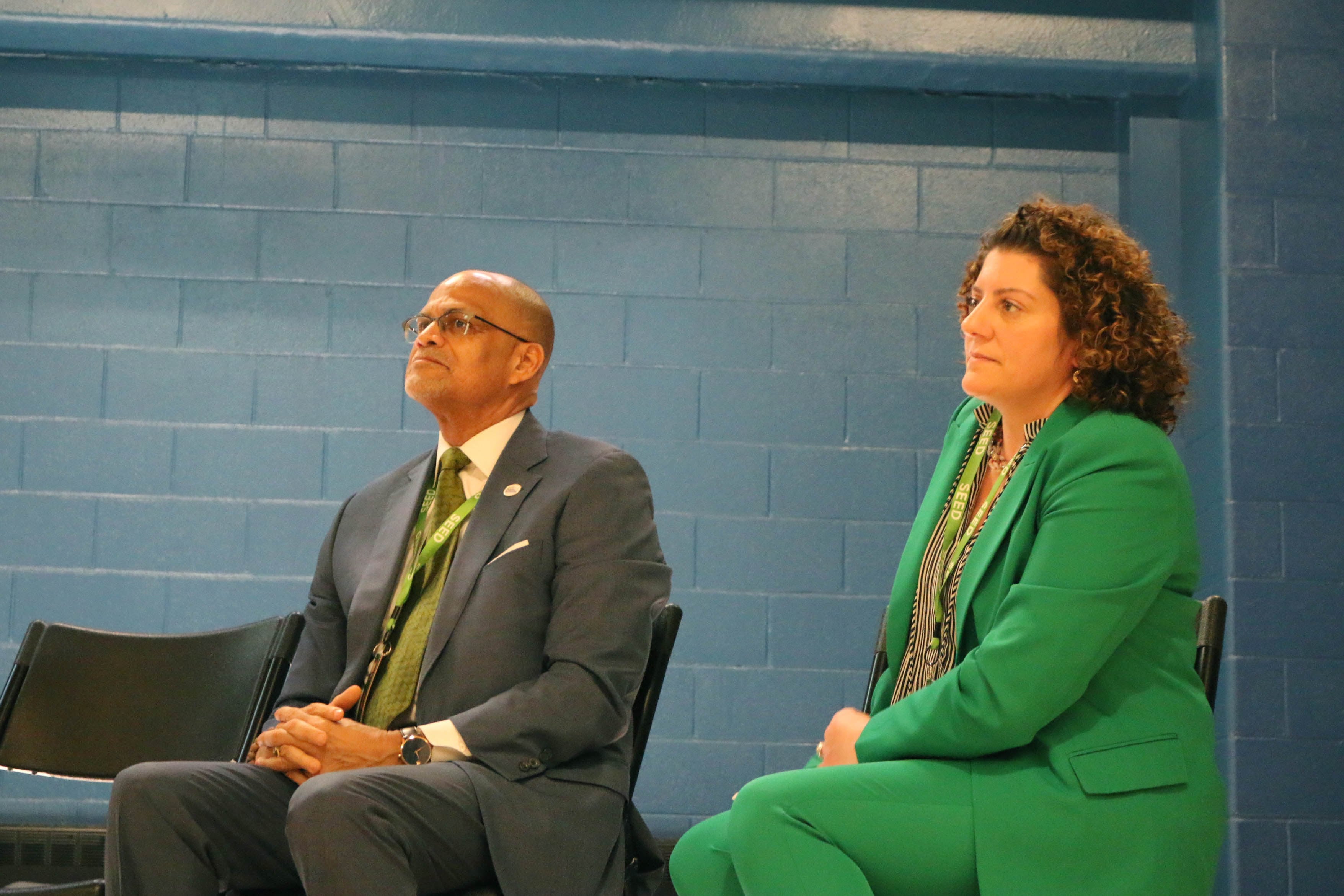Sign up for Chalkbeat New York’s free daily newsletter to keep up with NYC’s public schools.
New York City is expanding programs for students with autism, part of a broader pledge top Education Department officials announced Wednesday to create special education programming closer to where students live.
Beginning next school year, the city will guarantee that rising kindergartners in three local districts won’t have to leave their neighborhoods to access some of the city’s most popular programs for kids with autism.
Children with disabilities often must travel outside their neighborhoods to attend schools with smaller class sizes staffed by teachers with specialized training. Those trips can stretch over an hour each way, thanks in part to the city’s notoriously unreliable yellow bus system. Lengthy commutes can make it difficult to attend after-school programs or build friendships with children in their neighborhood who attend local schools.
“Many of our kids, we’ve got to send them way out of the neighborhood at great expense to the system and at great inconvenience to the families and to the kids themselves,” schools Chancellor David Banks said during a press conference at Brooklyn’s P.S. 958, which opened last school year as a model for serving local students with a broad range of abilities.
“We’ve got to fix this,” Banks said. “Today really is the beginning of that work.”
Children with autism who are entering kindergarten in Districts 5, 12, and 14 will be guaranteed a spot in a specialized program in their home district. (Those districts cover Harlem, Crotona Park in the Bronx, and Brooklyn’s Williamsburg and Greenpoint neighborhoods, respectively.) To accomplish that, the city is adding 160 total seats in those neighborhoods across three existing programs: ASD Nest, Horizon, and AIMS, which is short for Acquisition, Integrated Services, Meaningful Communication, and Social Skills.
Although Banks previously expanded Nest and Horizon programs, the addition of 160 new slots represents a drop in the bucket given the growing number of children who are classified with autism and who qualify for them. More than 10,000 children with autism could benefit from a seat in a Nest or Horizon program but are placed elsewhere, according to Education Department figures.
City officials acknowledged that they’re starting small and characterized the effort as a pilot program. Christina Foti, the department’s special education chief, said Wednesday’s announcement is “a ripple that will eventually turn into a tidal wave.”
Special education advocates largely cheered the expansion of Nest, Horizon, and AIMS programs, which are in high demand. City officials said 95% of children who attend Nest and Horizon programs graduate from high school, more than 30 percentage points higher than students with disabilities overall.
The city also released a report with a series of recommendations for improving the special education system, after collecting input from parent leaders, policy experts, and educators.
“I think it is a really important first step,” said Maggie Moroff, a member of the advisory group that produced recommendations and a policy coordinator at Advocates for Children, a group that helps families navigate the special education system.
Moroff was glad to hear city officials reiterate their commitment to including students with disabilities alongside general education students when possible and creating more programs in their home neighborhoods. And she also appreciated a new glossary released by the Education Department that aims to help schools use more inclusive language when referring to children with disabilities and the programs that serve them.
But questions remained about the city’s plans, including whether it will scale up special education programming beyond the autism-focused initiative reaching just three of 32 local districts. Multiple advocates also noted there was little mention of the city’s vision for District 75, a network of schools that educate more than 26,000 students with more significant disabilities. Those children are largely separated from students without disabilities.
“Like so many things, the devil is going to be in the details about how it plays out,” Moroff said.
Peer support for parents trying to get special education services
City officials also pledged to beef up recruitment of caregivers trained to help others navigate the meetings where families and schools create individualized education programs, or IEPs. These legal documents spell out what services each child should receive.
Advocates say caregivers often don’t know the ins and outs of the IEP process, what their rights are, or even what services their children may need.
“It’s scary – and that’s universal,” said Lori Podvesker, a parent and director of disability and education policy at INCLUDEnyc, an organization that trains parent advocates and supports families who have children with disabilities.
The parent advocates, who also have children with disabilities, are trained to help other families understand the process. They attend IEP meetings alongside their peers — earning as much as $50 per meeting.
Special education advocate and parent Paullette Healy said she signed up to be a parent member years ago and completed the training, but the city never responded to her request to complete a fingerprinting requirement. She has still shown up to hundreds of IEP meetings to advocate on behalf of families, though not in an official paid role.
“It’s always existed, but wasn’t really utilized,” Healy said.
City officials said they’re working with INCLUDEnyc to bolster recruitment and spread awareness that families can request a parent advocate to attend their IEP meetings. Education Department officials declined to provide any tangible goals for the new effort, including how many parent advocates they hope to train.
Alex Zimmerman is a reporter for Chalkbeat New York, covering NYC public schools. Contact Alex at azimmerman@chalkbeat.org.








